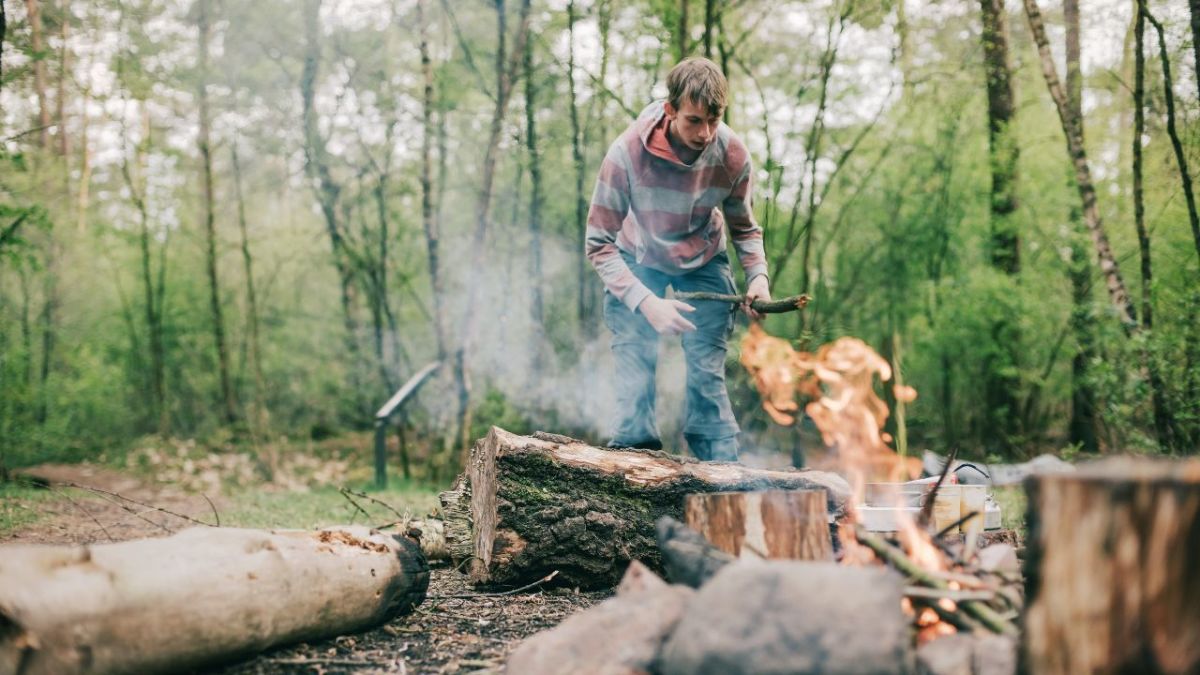
The first 13 things a new prepper should learn
👉 The key facts from this guide
- Learn how to make a fire: Fire is essential for warmth, cooking, and water purification. Practice different methods to start a fire without a lighter.
- Learn how to find and purify water: Water is essential for survival. Know your environment and possible water sources, and learn how to purify water without a water filter.
- Learn how to get in shape: Physical fitness is important for carrying equipment and defending yourself. Regular training is essential for this.
- Learn to consciously perceive your environment: Situational awareness can help you recognize dangers early on and respond appropriately.
- Learn how to be an inconspicuous person: In crisis, it can be advantageous to not stand out and blend in with the crowd.
- Learn how to perform basic first aid: Basic medical skills can be lifesaving. You must know how to treat wounds and administer first aid.
It can be difficult to keep up with all the new trends in crisis preparedness and be a versatile survivor.
And even if you think you know everything, there is always something new and different that you can learn from the stories and experiences of other people.
With this guide, you will get an overview of what a prepper should know and learn about emergency preparedness for the first time.
What do you need to know to survive?
Let's get started.
Skills are more important than equipment
Owning good and enough equipment can be a shortcut to learning a required skill.
But equipment will not help you or only to a limited extent if you do not master the skill.
Perhaps that is why so many preppers neglect their skills and prefer to collect equipment and equip themselves with all sorts of items (see my prepper list).
Don't get me wrong, equipment is very valuable and you should invest in it. It is not only a shortcut in skills, often it is a shortcut in time and material - and both are precious.
But skills cannot be lost. Skills do not break, they are not stolen or used up. When the unexpected happens (after all, it is impossible to prepare for everything), you rely on your skills.
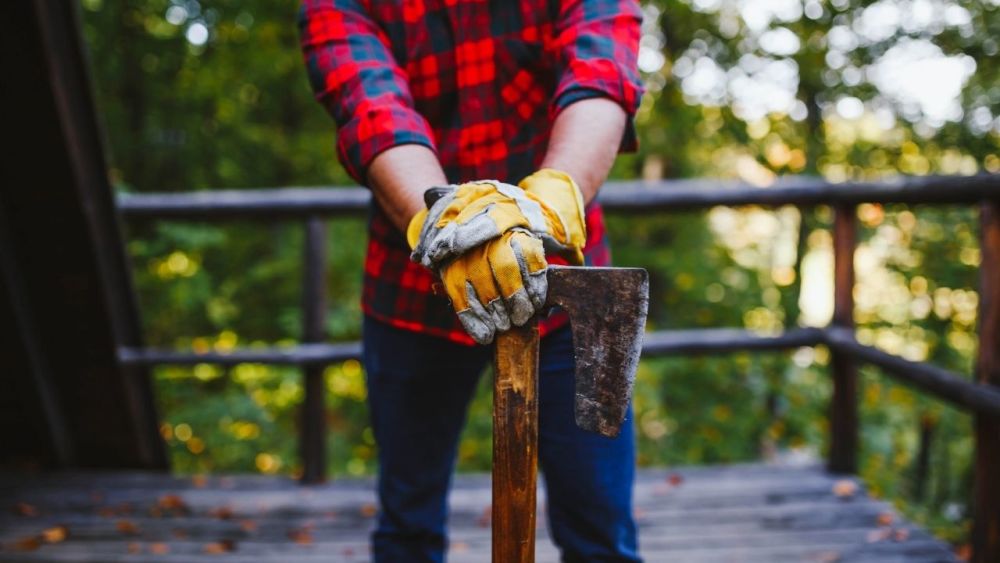
Therefore, it is important that you prioritize which skills you want to learn. This depends in large part on your specific strategy and the specific SHTF situations you are preparing for.
Is it a blackout? A flood? Or maybe a gas crisis?
And therefore there are still some general basics that you can rely on in most situations.
Let's go through them.
1. Learn how to make a fire
There are many ways to start a fire without a lighter, and not all of them work in all circumstances. Fire is essential for:
- Purifying water
- Cooking and dehydrating food
- Keeping you and your family warm
- Keeping animals and insects away
- etc.
It also helps you feel better in a survival situation.
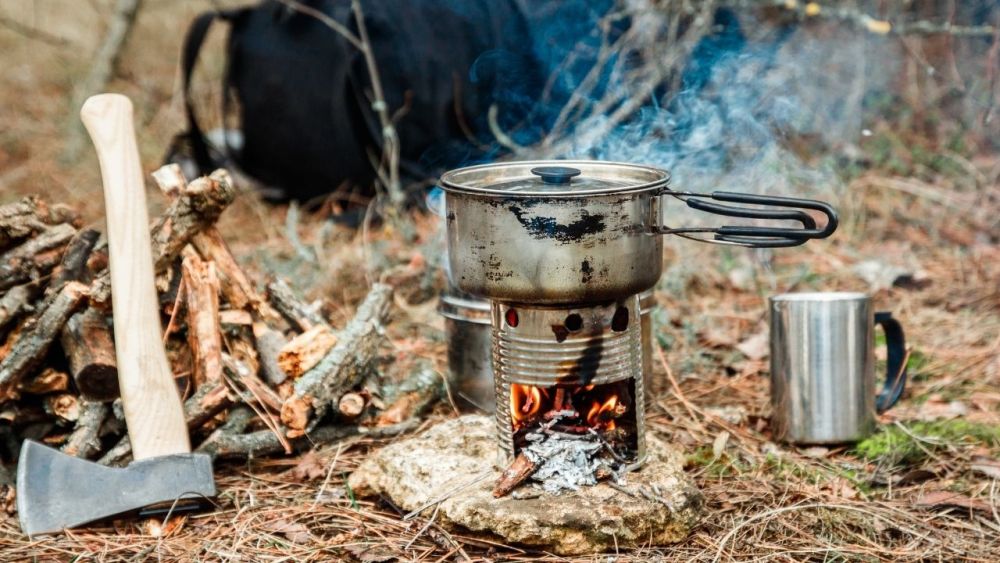
However, to start a fire, you need something that ignites and burns. It's not as easy as you might think, especially for people who haven't grown up with it.
Time and again, I see in courses and programs that people can't light a fire with just one match.
I have a whole article on how to build a fire correctly and light it.
You should also master the Firesteel. It may seem simple to start a fire with a Firesteel (here's my top list), but without practicing beforehand, it will probably become complicated.
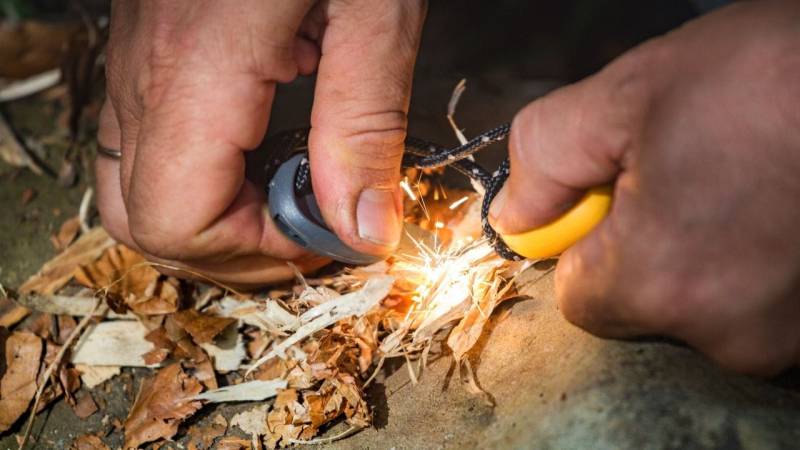
Many people carry a small magnifying glass in their bug-out bag or EDC kit so that they can start a fire. Have you tried to start a fire with it?
It can be difficult if you don't prepare correctly and know the pro tips for starting a fire with the sun. Additionally, a cheap credit card-sized Fresnel lens is much better than a small magnifying glass, but it still requires dry tinder and sun.
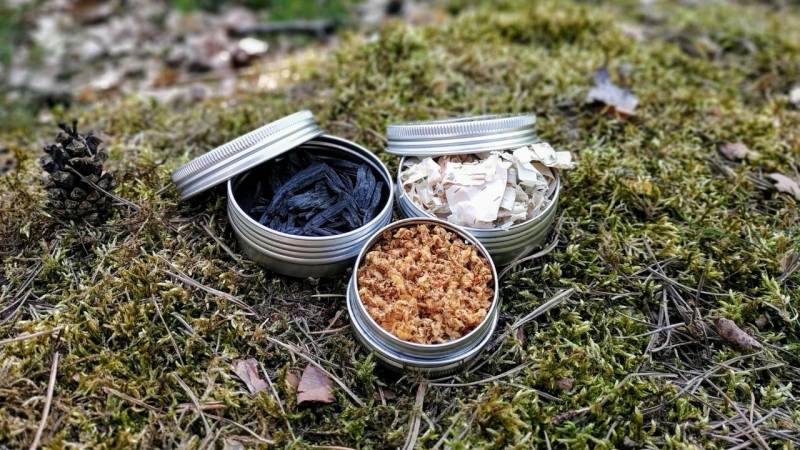
And then there's the bow drill - the high art of starting a fire. Without ever having made a fire with a bow drill yourself, you will NEVER succeed right away.
Especially the correct bow drill technique is important, the general functionality of a bow drill and the right wood are essential.
Here's an example of how I make a fire with a bow drill:
2. Learn how to find and purify water
Water is the big thing that's essential for just about everyone in a survival situation.
While you can go a few days without water before you die of dehydration, you'll quickly become incapacitated.
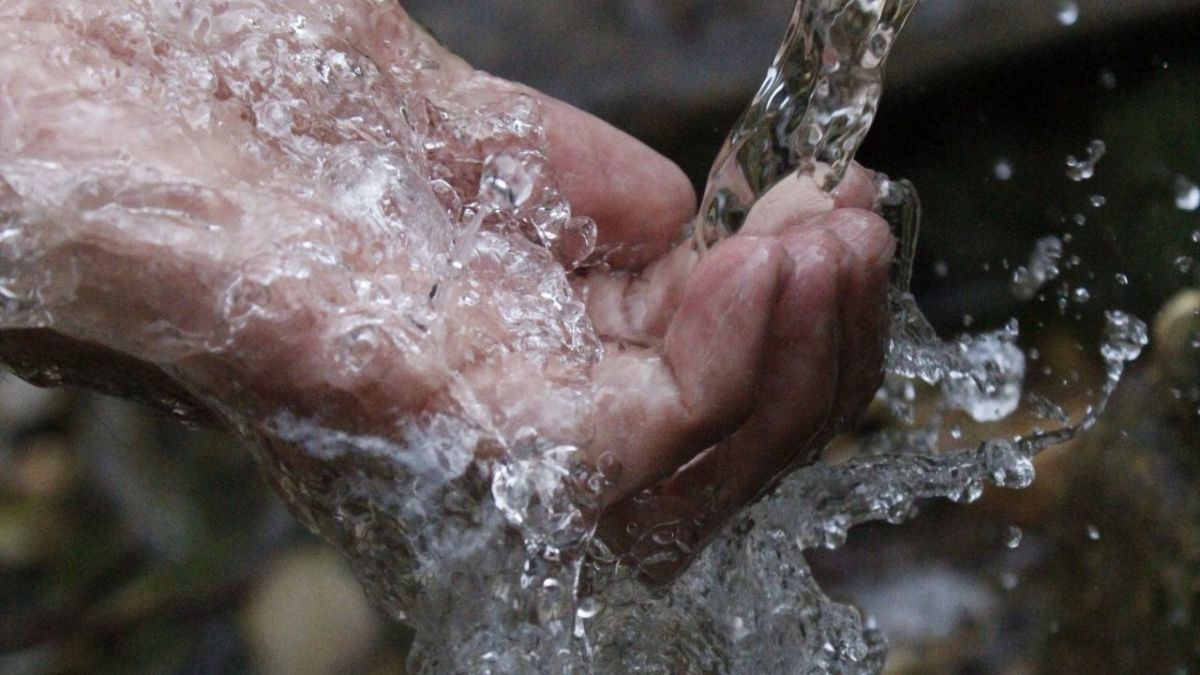
And that's also the biggest problem - after just 24 hours, you could die from heat stroke or just stupid mistakes.
In addition: if you don't know how to properly filter water, you could get all sorts of unpleasant things that could kill you.
Always remember that you can only carry as much water as you can lift. Everyone should have a rough idea of where they are going when taking an escape route.
Your escape route should allow you to find water along the way. This will often lengthen your escape route, but it's worth it if it means having water along the way.
As water is so important, you MUST have contingency plans for it.
You should familiarize yourself with waterways in your area that are not on your route.
You should also learn how to purify water without a water filter in case it is lost, stolen, or broken.
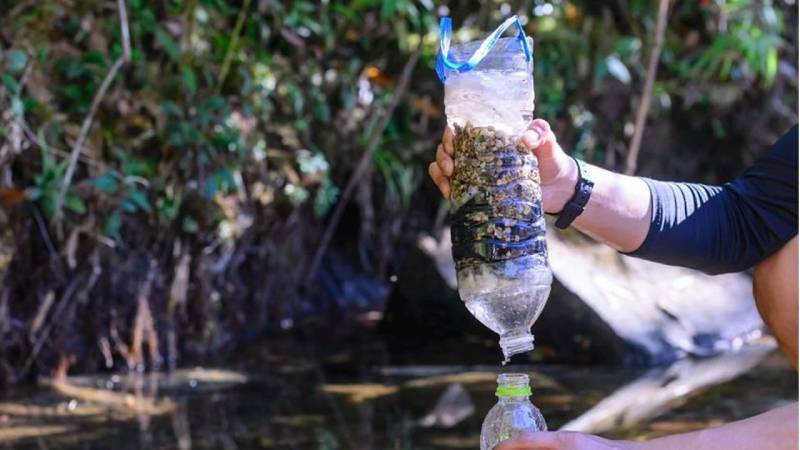
Boiling water is one of the most effective methods, but as mentioned above, you need a fire to do it.
3. Learn how to get in shape
You may have to leave your home – and with a lot of equipment.
The more in shape you are, the more you can carry (see How much equipment should you pack in your bug-out bag?). However, this is not something you can wait for until SHTF begins, and it's not something you can just read about. It's something you actually have to do, often.
You should strap your backpack on your back and go to various terrains. It is advisable to build up your lung and leg capacity by doing cardio training.
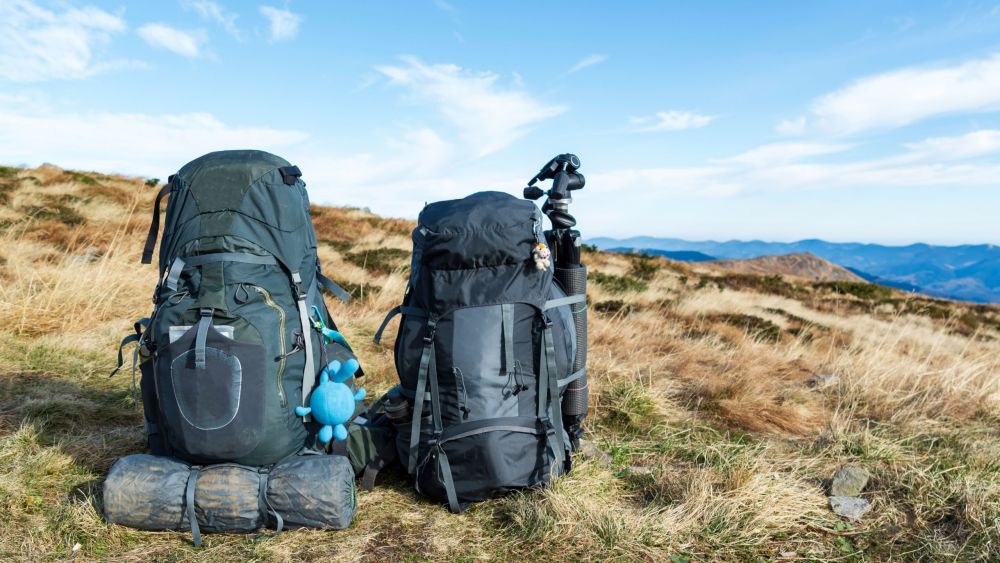
Getting in shape also helps you defend yourself. If you are tall, strong, fast, and enduring, you have a much better chance of winning a fight than someone who doesn't.
If you're not in top shape yet, you should either get a coach to help accelerate the process or at least look for a good training program to follow.
Read also
Body training in the forest: Effective workout and sports (Forest Fitness). – Discover the power of Forest Fitness! Learn how to use the forest as your personal gym, strengthen your muscles, and reduce stress at the same time.
4. Learn to consciously perceive your surroundings
Situational awareness is something almost everyone can develop. There are three different levels of situational awareness.
First, be aware of the elements in any given situation. This is easy to learn because you just have to observe what's around you.
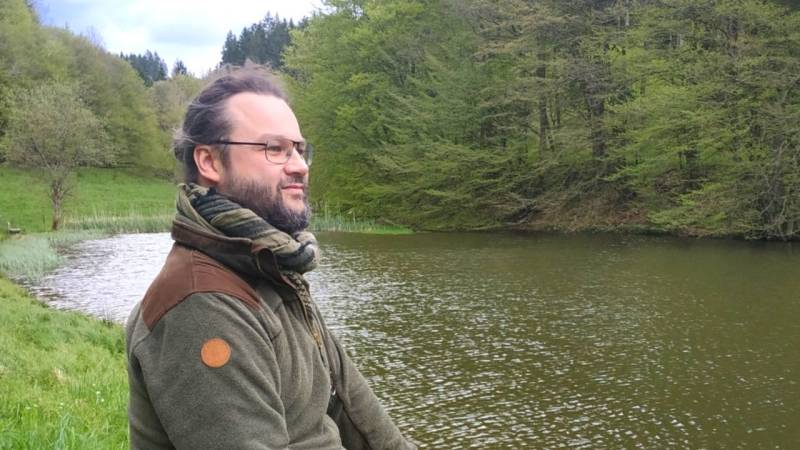
Take a trip to a new park and sit down. Take some time to really observe your surroundings and take some pictures with your phone.
Then stop looking around, put your phone away, and write down what you saw. Ideally, as detailed as you can remember.
After 24 hours, you do the same thing when you get back home. Write down everything that comes to mind from the park - as detailed as possible.
Then compare your observations with the photos you took.
You can also simply go into the forest, sit at a tree and observe for an hour what is happening there. This "Sit spot" will increase your attention and mindfulness over time. (source)
Secondly, you should understand every current situation. Start to learn not only to observe your situation but also to read the situation. What just happened, what do you see now?
Thirdly, it is advisable to understand what a possible future may look like, arising from a situation.
So, you go one step in the opposite direction. Instead of saying "How did we get where we are now?" we ask, "What will happen next based on what I see?"
It's like playing chess. You make moves with your pieces, not just based on your goal but also based on what you think your opponent will do next.
5. Learn to be an inconspicuous person
Do you know the concept of a gray man?
The gray man theory is a way to disappear in the crowd so that you can move unnoticed in the event of a disaster.
The idea is that you can hide your crisis preparedness and skills by blending in with the crowd before or during an emergency.
It means something like "stay uninteresting and behave like most people around you at a specific moment."
Perhaps you can remember people from your work or your class.
There are individuals who never stand out. Occasionally, you don't even know their name.
They don't get involved, never draw attention to themselves, no matter where they are or what they do. I like the expression "to remain uninteresting" because it embodies everything you need to express.
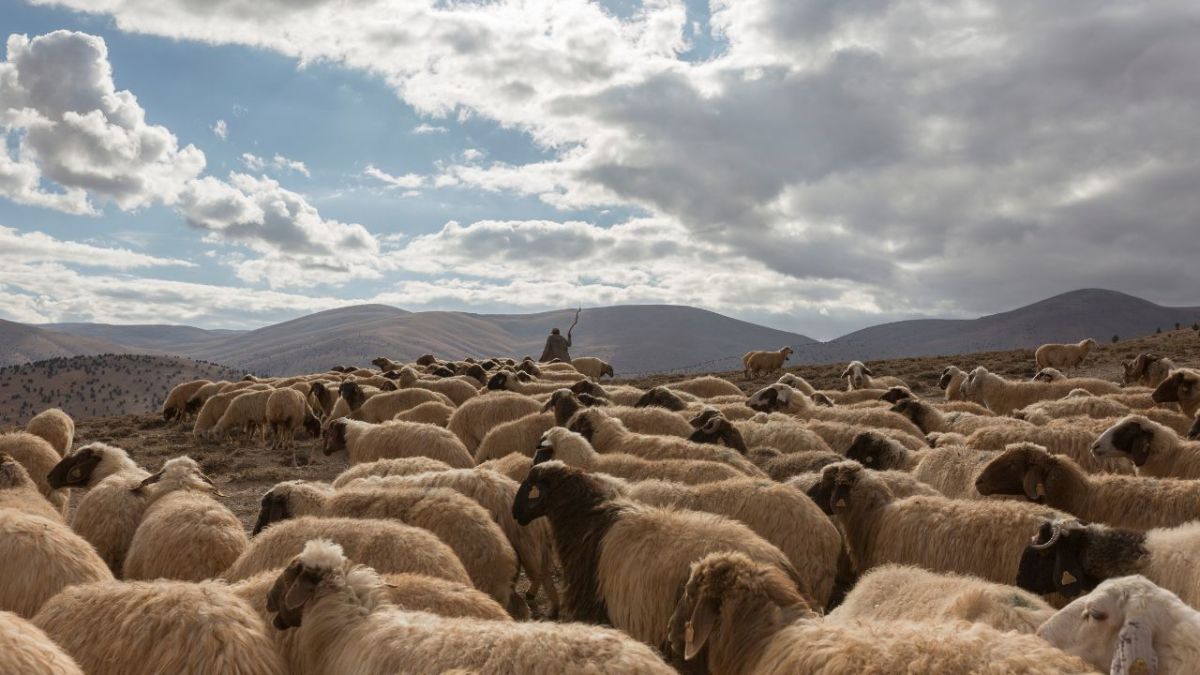
This also affects how you treat your house or apartment. Do you paint it green and make it the house that stands out in your street? Or is it inconspicuous and looks like all the other houses?
Although it is generally referred to as the "gray man theory," this theory can, of course, be applied to anyone, man or woman, of any age, who must blend into a crowd in the midst of a catastrophic situation.
When you think about blending into the crowd, that's mostly negative, isn't it?
No one wants to be like everyone else. You want to be unique, to stand out – that is, until an emergency occurs and you are the only one prepared.
As a thoughtful prepper, you are ready when a disaster strikes, but what will everyone around you do?
Most likely, they will panic.
In a state of panic, people become desperate, and desperation can lead people to do anything to stay alive.
And at this point, you definitely don't want to stand out as the only person who is prepared for survival.
I can recommend the detailed English article here for you.
6. Learn how to perform basic first aid
So you've put together your ultimate first aid kit that has all the tools needed to reattach a severed head or limb.
But have you actually used any of these items before?
It's not useful to carry all this equipment with you if you're not familiar with it or how to use it.
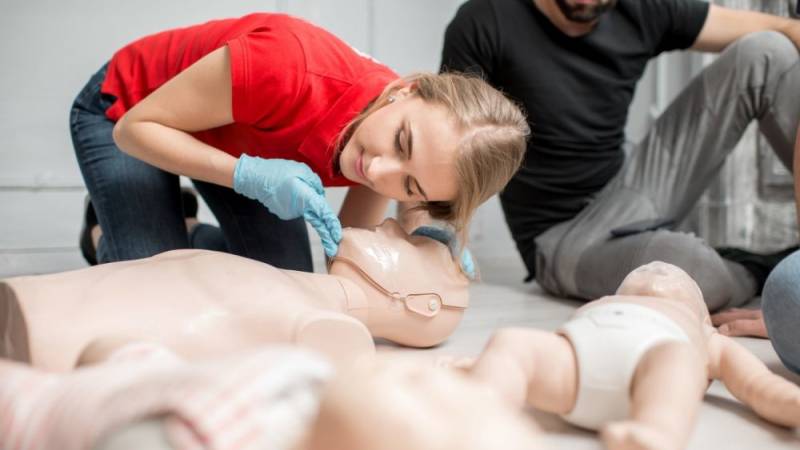
Developing basic skills to care for wounds is much more valuable than the tools themselves. There are many guides available online on how to sew wounds or deal with bone fractures.
Binding a wound and stopping bleeding is only part of wound treatment. Also learn how to clean and prepare a wound.
Additionally, there are first aid courses offered by survival and wilderness schools that show you what to do when an injury occurs outdoors.
Moreover, please keep in mind the basics like basic life support, storage of medications, production of natural remedies and remedies, as well as shock treatment (elevating feet, warm blankets, etc.).
7. Learn how to navigate
In my opinion, navigation is often ignored too often.
We have so many devices and technologies that we hardly need a physical map or compass anymore.
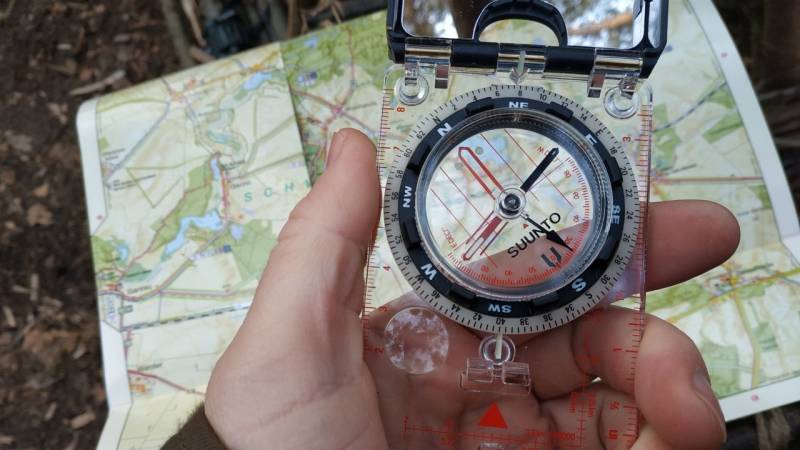
Unfortunately, there is an excellent chance that GPS and digital maps will not be available in a crisis (such as a blackout or an EMP attack).
Learn how to use a compass with a map. Learn how to read different types of maps (topographic maps), know your area and the areas nearby where you may need to flee.
Also learn how to read the sun and determine the cardinal directions without a compass. Spend some time learning the basics of celestial navigation. This knowledge will be invaluable to you and others.
8. Learn how to cook from scratch
Preparing your tomato sauce or pizza sauce may sound difficult, but honestly, it's incredibly easy!
Cooking from scratch is both an art and a science, but that doesn't mean it is difficult.
If you don't know how to cook from scratch, NOW is the time to learn.
As someone with culinary training, I can probably conjure up many things. I recommend starting cooking at home in peace and quiet. Then ideally you cook outside occasionally.
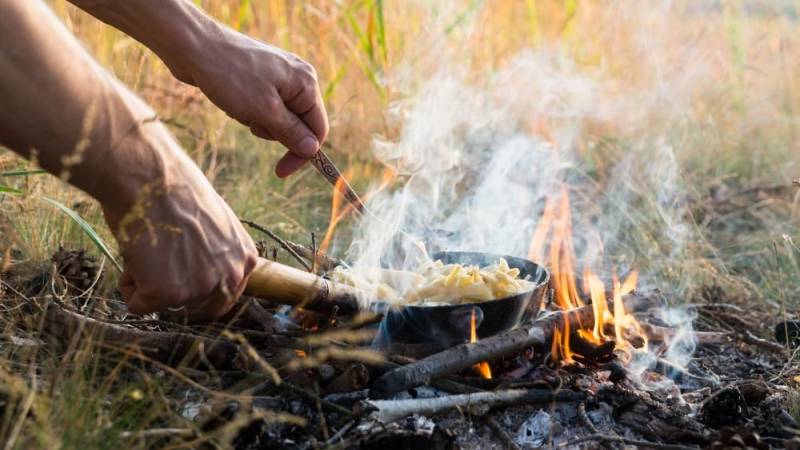
For outdoor time, I recommend my recipe database as well as these guides: 45 ideas and 7 recipes for camping food without cooking.
You will have limited supplies and through cooking, you will know best how to make the most of it.
Wasting liquids when cooking or making mistakes when cooking will turn out to be very expensive.
Furthermore, ideally familiarize yourself with the different outdoor stoves.
Learn to apply various methods and make the most of your fire and fuel.
9. Learn how to start a garden and grow vegetables
When things get difficult, you should know how to feed your family.
The best way to do this is to grow your food.
I have looked at many plants and identified 16 fast-growing vegetable plants that you should grow in a crisis.
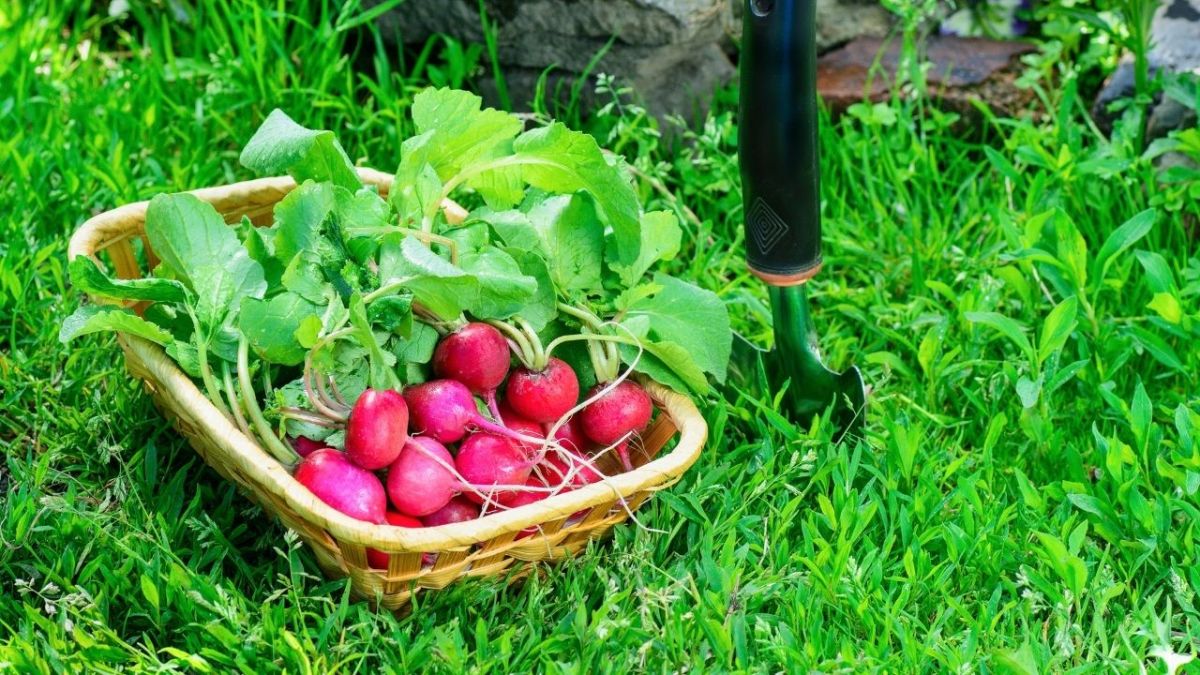
This way you can adjust food and the corresponding wishes and needs of your family.
If your family loves broccoli, you should learn to grow it.
Do you use a lot of tomato products? Grow a few tomato plants and learn how to make your own tomato sauce, braised tomatoes, or pizza sauce.
It's not difficult to create your own self-sufficient garden. Read my guide: The Complete Guide to Self-Sufficiency in Your Garden.
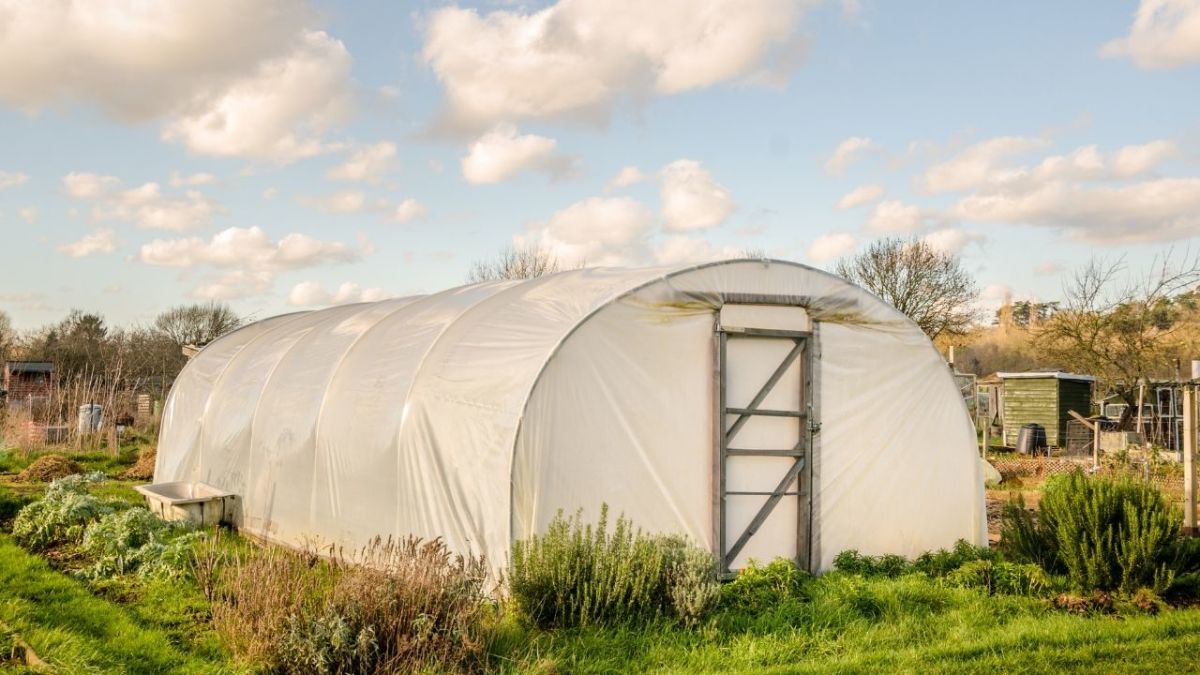
Once you have set up and started your garden properly, you can easily feed a group of people with it.
10. Learn how to can food
If you cook from scratch and source food from your garden, you should can and store excess food.
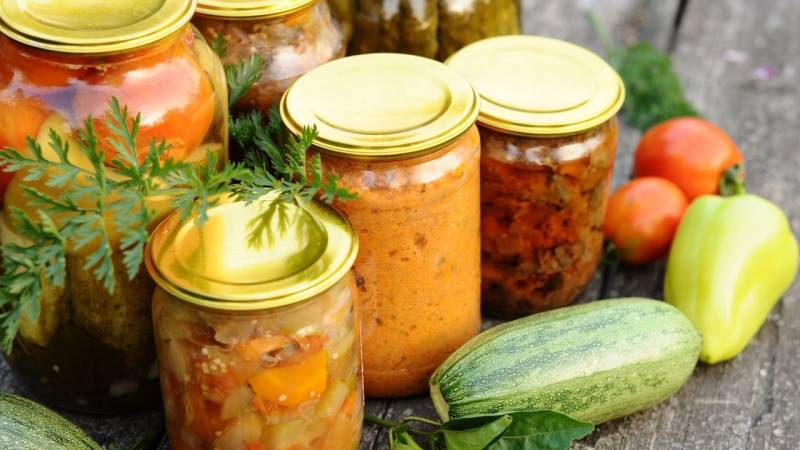
There are two types of canning equipment – pressure cookers (with pressure functions) and canning machines. With a canning machine (I have this one and am happy with it), you can high-acid foods such as most fruits and sometimes tomatoes.
You can make jams and jellies from your fruit bushes and trees. I made strawberry jam, blueberry jam and applesauce.
They are all incredibly easy to prepare, and the principle applies to most jams such as blackberry, fig, peach, elderberry, and others.
Pressure cookers – I use this one from WMF – are needed to can low-acid foods such as vegetables and meat.
A pressure cooker is a pot used for quickly cooking food through the application of pressure. Pressure cookers are typically made of aluminum or stainless steel and have a tightly sealing lid that traps heat and moisture.
The lid has a vent for releasing steam from the pot. Pressure cookers are typically used for cooking beans, grains, stews, soups, tough cuts of meat and vegetables.
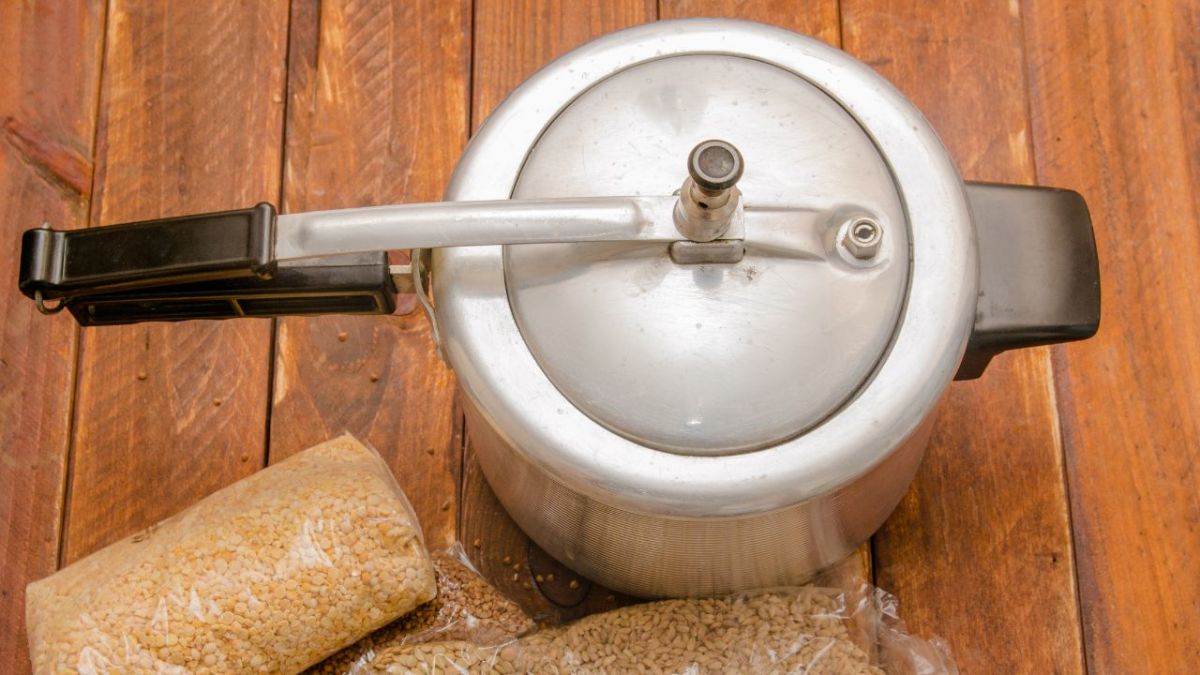
When combining ingredients, make sure to follow a canned recipe. If you do not apply the right pressure to kill all bacteria, it can be dangerous for your family.
Read also
Prepping on a small budget? Have you made all the preparations? – Will the power outage or another crisis occur? Emergency preparedness doesn't have to cost a lot. Prepping is about starting before it's too late.
11. Learn to listen to your gut
In today's "scientific" thinking, we often forget to listen to our gut.
I'm not saying that reason is a bad thing. Ideally, both should harmonize with each other.
I'm talking about instinct and intuition. And these two things are typically guiding, especially in an emergency.

When the normal façade of life is stripped away and things get rough, we need to know how to listen to our gut. Like almost everything else on this list, this ability must be honed beforehand, so we can effectively use it when we need it.
So how do you learn to listen to your gut? There are several ways:
- Meditation
- Take the opportunity to follow your gut feeling
- Start noticing everything you pick up with your five senses
- Go out into nature
- Get creative
- Avoid too much technology
- Keep a journal
- Draw, scribble or start a journal
- Escape everyday life
- Feel more, think less
- Practice empathizing with people before you get to know them
12. Learn to negotiate
Learning how to negotiate will benefit you now and in the future.
If your financial situation has changed and you urgently require a raise, learning to negotiate will absolutely help you in this situation.
If we ever get to the point where we have to exchange goods and services, negotiating will help you get the best deal.

Negotiating is an art that needs to be practiced again now so that we have the skills immediately and in the future when we require them.
So how do you negotiate to get what you require while also being a blessing to the other involved person or group?
This is an amazing article that will guide you through what you need to understand and learn to negotiate successfully. (in German)
13. Learn how to sharpen a knife or an axe
We live in a "throwaway society" and that is brutal for the environment.
Something breaks, you throw it away and you get something new.
A pair of scissors gets dull, you throw it away and get a new one.
A shirt gets a little hole, you donate it to the clothing donation (if at all) and get a new one, right?
I have experienced it myself: A Mora Companion broke from a buddy and what did he do? He did not sharpen it and try to fix it - he bought a new one. And why? Because it's work to repair the knife and a new one costs less than 15 euros.
Now, what happens if we have a repeat of the Great Depression in the USA or plunge into a crisis?
What if you had to make do with what you have?
There may come a time when it simply isn't possible to buy something new.
Learning how to sharpen a knife, an axe or any other tool should be a skill you possess.
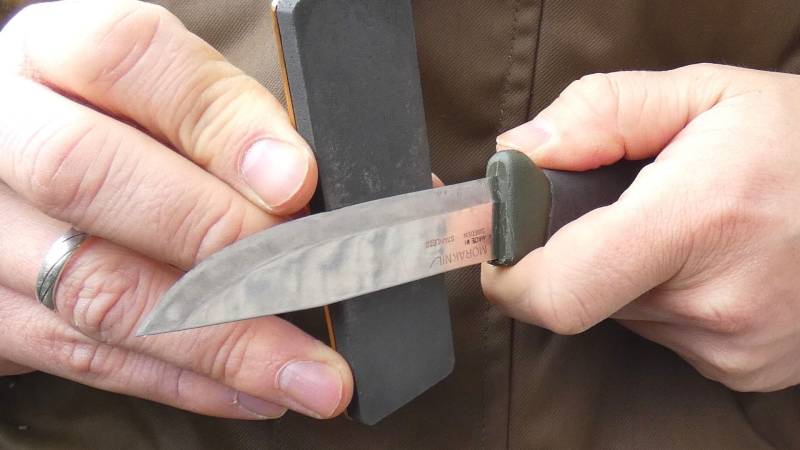
So how do you sharpen a knife or an axe? Here is my comprehensive guide and here I will show you how to sharpen your knife if you don't have a sharpening stone.
Questions and answers about prepping and crisis preparedness?
What is the first step in prepping?
Effective preparation begins with a personal risk assessment to determine what threats you are exposed to and where you should focus most of your time and resources.
Once you know what to prepare for, it's a good idea to focus on the basics of water, food, shelter, fuel, and sanitation.
Is prepping pointless?
Prepping is pointless if you are preparing for the wrong reasons and not fully equipped to deal with a SHTF situation. Crisis preparedness, however, is NOT pointless if you truly know what you need to prepare for and have the skills to survive after a disaster.
How long is bottled water good for?
The recommended shelf life is two years. The U.S. Food and Drug Administration, which regulates bottled water, does not require a shelf-life statement, but due to plastic degradation over time, especially when exposed to heat, two years are recommended for still water and one year for carbonated water.
What about you?
Are you new to prepping?
Which basic skills do you think everyone should master to survive that are not listed here?
Are you an experienced prepper? Is there anything you want to add to this list?
Share it with me in the comments, so we can all be better prepared.


Author of the guide
Martin Gebhardt
Hey, I'm Martin. On my blog, you will learn the basics and numerous details about living in the wild. I think survival, bushcraft and the good life in nature are the keys to happiness. Find me here on Instagram or on YouTube. You can find more about my mission on the About Me page.
Was this guide helpful?
26 people found this guide helpful.
5.00 out of 5 points (26 Ratings)
Comments (0)
This post may contain affiliate links. So if you click on the links and make a purchase, I will receive a small commission at no additional cost to you. Click here, to learn more about it.


